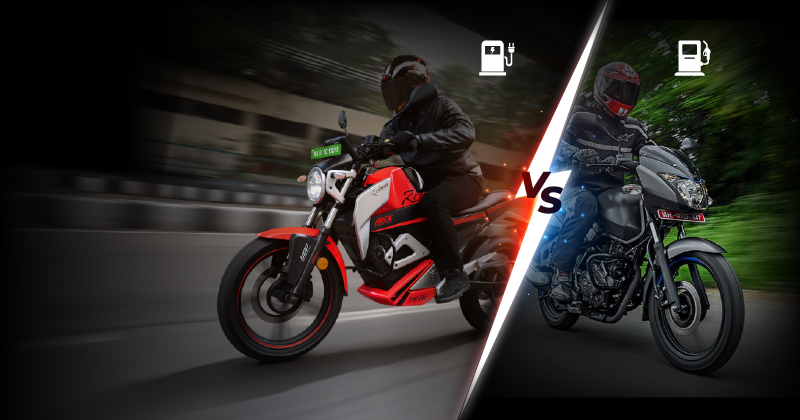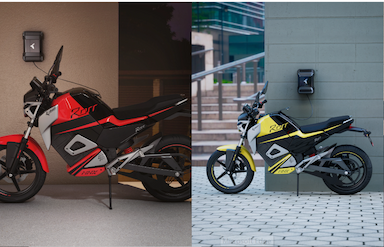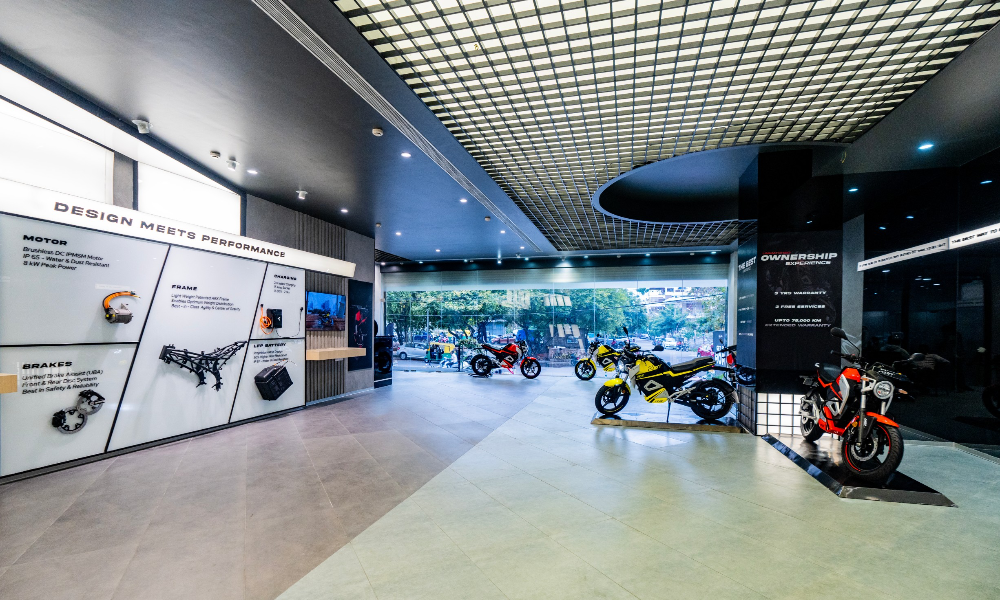- ALL
- TRENDING
- PERFORMANCE
- CHARGING
- BATTERY
- DESIGN
- TECH
- NEWS
Electric Bike vs. Petrol Bike: A Comprehensive Cost Comparison

Table of Contents
- EV Bike vs Petrol Bike Cost
Electric bikes have become a huge phenomenon among bike lovers owing to their eco-friendly nature, affordability, and efficiency. In fact, the sale of electric two-wheelers in India hit a record 910,930 in 2023-24, with an impressive monthly sale of 136,559 in March 2024 alone.
Unlike traditional petrol bikes, e-bikes are battery-powered, significantly reducing carbon emissions and contributing to a greener environment. However, despite the environmental benefits and long-term cost savings, high upfront EV bike costs are a concern for some consumers. This raises a critical question - how cost-effective are electric bikes compared to their traditional counterparts?
This blog post will delve into a comprehensive cost comparison between electric bikes and petrol bikes to help you make an informed decision.
EV Bike vs Petrol Bike Cost
1. Upfront Costs
Electric bikes have a slightly higher purchase cost compared to petrol bikes. This is partly due to the high-cost electric batteries used in most models. Additionally, the market for electric bikes is relatively new, and the technology is nascent, which means more affordable options are yet to be designed.
However, several government initiatives, such as the PM E-DRIVE scheme, which will offer a subsidy of ₹10,000 on electric two-wheelers, have been introduced to offer price subsidies in an attempt to promote the adoption of EVs.
On the other hand, the upfront costs associated with petrol bikes are typically lower. There is also a wider range of bikes to choose from, offering customers the flexibility to buy the model best suited to their needs.
2. Running Costs
Charging an electric bike typically requires between 2-5 units of electricity and it usually takes 6-10 hours to fully charge. Depending on your area, each unit costs between ₹ 4 - 8. Therefore, it costs only 10 to 15 paisa to travel a kilometre on an electric motorbike. As a result, travelling 50,000 km will cost approximately ₹ 5,000. While the time spent on charging is another cost to consider, EVs are nonetheless a relatively economical choice in monetary terms with a low per-kilometre cost.
In contrast, petrol bikes, which average 40-50 km per litre, cost significantly more. With petrol prices averaging ₹ 2 per km, travelling 50,000 km can cost up to INR 1,00,000 in fuel alone.
3. Maintenance Costs
With fewer moving parts, electric bikes require less maintenance, even after years of use. While replacing lithium-ion batteries may be expensive, they are known for their durability and face less wear and tear, making EVs cost-effective.
Petrol engines require regular checking and maintenance after every 3,000 km - 10,000 km. With a higher number of moving parts, maintaining petrol bikes invariably proves to be costlier.
You can also read: Battery technology of electric bike
4. Environmental Impact
Electric bikes produce zero carbon emissions and lower your carbon footprint significantly. They are far more environmentally friendly and may reduce carbon emissions by 500 pounds every year.
On the other hand, petrol bikes release harmful tailpipe emissions including carbon monoxide, hydrocarbons, and other particulate matter, leading to high air pollution.
You can also read: E-Bikes: The Newest Trend in Sustainable Transportation
Comparing electric bikes and petrol bikes based on the cost factor alone is not enough. It is important to consider other costs such as e-bike design, commuting costs, maintenance, and recharging/refuelling.
While electric bikes may have a higher upfront cost, in the long run, they save you more in terms of recharging and maintenance. The reduced environmental impact is also a huge bonus.




